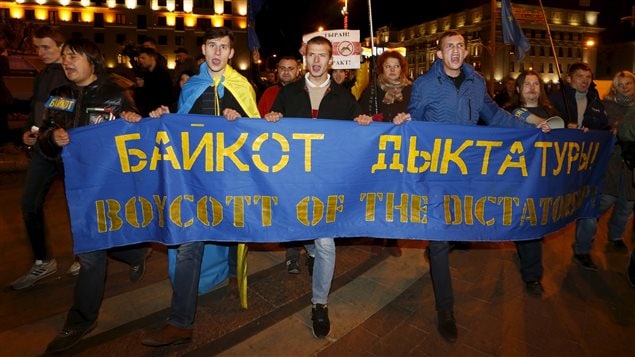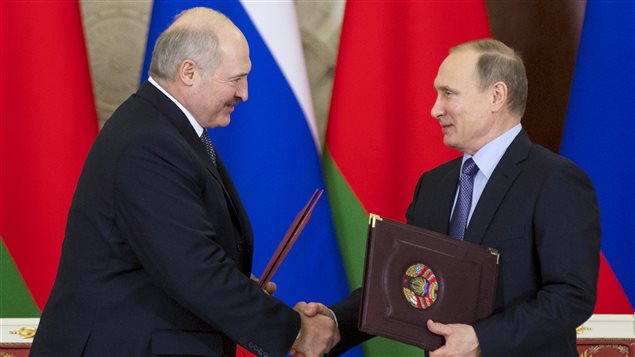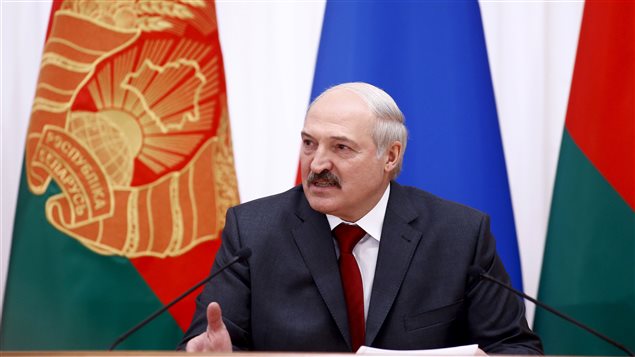Western leaders used to call him Europe’s last dictator.
But Belarusian President Alexander Lukashenko, who has ruled the former Soviet republic with an iron fist since 1994, is clawing his way back to Western favour largely thanks to the unintended consequences of Russia’s muscle-flexing in neighbouring Ukraine and the failure of Western policy in Eastern Europe.
Last week, Canada quietly announced that it has become the latest Western nation to remove some of the sanctions on Lukashenko as part of its “in response to recent positive developments in Belarus.”
Ottawa will be lifting sanctions that have been in place since December 14, 2006, said a statement from Global Affairs Canada.
This comes after the European Council lifted an asset freeze and a travel ban for 170 individuals in Lukashenko’s inner circle and a freeze on the assets of three companies in Belarus.
“The decision was taken in response to the release of all Belarusian political prisoners on August 22, 2015, and in a context of improved EU-Belarus relations,” the Council said in a statement.
The European’s also cited the fact that the October 2015 presidential elections, where Lukashenko won his fifth consecutive term, were held “in an environment free from violence.”
Really?
Let me get this straight… So a president of a country jails his most outspoken opponents, including the only man capable of putting up a half-decent fight for the presidency, then releases them a month-and-a-half before the elections, shellshocked and with no time to organize, and Western leaders call that “a positive development?”

What the West is really admitting to is that its policy in the former Soviet Union has been an utter failure.
Anti-Western sentiments in Russia have hit an all-time high. Russians feel encircled and have become belligerent and unpredictable. And President Vladimir Putin is more popular than ever before.
Ukraine, the second largest former Soviet republic after Russia, is in shambles. It has lost Crimea, most likely for good; thousands of people are dead and thousands more could die any minute if the fighting in the east resumes. And all we have to show for it is another kleptocratic government sitting in power in Kyiv. But wait, at least this one is a pro-Western kleptocracy.
And now, suddenly, the West is looking for excuses to re-engage with Lukashenko, who had the political backbone to stand up to his old “frenemy” Putin and refused to recognize Crimea’s annexation and has played a key role in brokering a ceasefire in eastern Ukraine by hosting talks between various players in his capital Minsk.

Russia’s actions in Ukraine came as a cold shower for the former collective farm manager who has worked all his political life on a union with Russia. But unlike Putin, Lukashenko wants a marriage of equals, his political ambitions extend far beyond the status of Russia’s “little brother.”
Russian annexation of Crimea and the support for pro-Russian rebels in eastern Ukraine showed Lukashenko that if it feels sufficiently threatened, the Kremlin is willing to settle for reintegrating its “brotherly” Slavic neighbours into its sphere of influence piece by piece, a threat that is as present for Belarus’s Russian-speaking east as it was in Ukraine’s Russian-speaking regions.
Even though Belarus is squarely in the Russian sphere of influence economically and militarily – the two countries formed a union in 1996, Belarus has also joined the Eurasian Union, alongside Armenia, Kazakhstan and Kyrgyzstan, as well as the Russian-led military alliance called the Collective Security Treaty Organization (CSTO) – Lukashenko is looking for a political counterweight for Russia.
And the West, which spent the last two decades trying to undermine Lukashenko, is willing to play ball.
But it’s about to discover – as former Russian President Boris Yeltsin and later Putin found out – that Lukashenko is one heck of a player, angling for advantages from every possible position.








For reasons beyond our control, and for an undetermined period of time, our comment section is now closed. However, our social networks remain open to your contributions.